Why Birds Bite
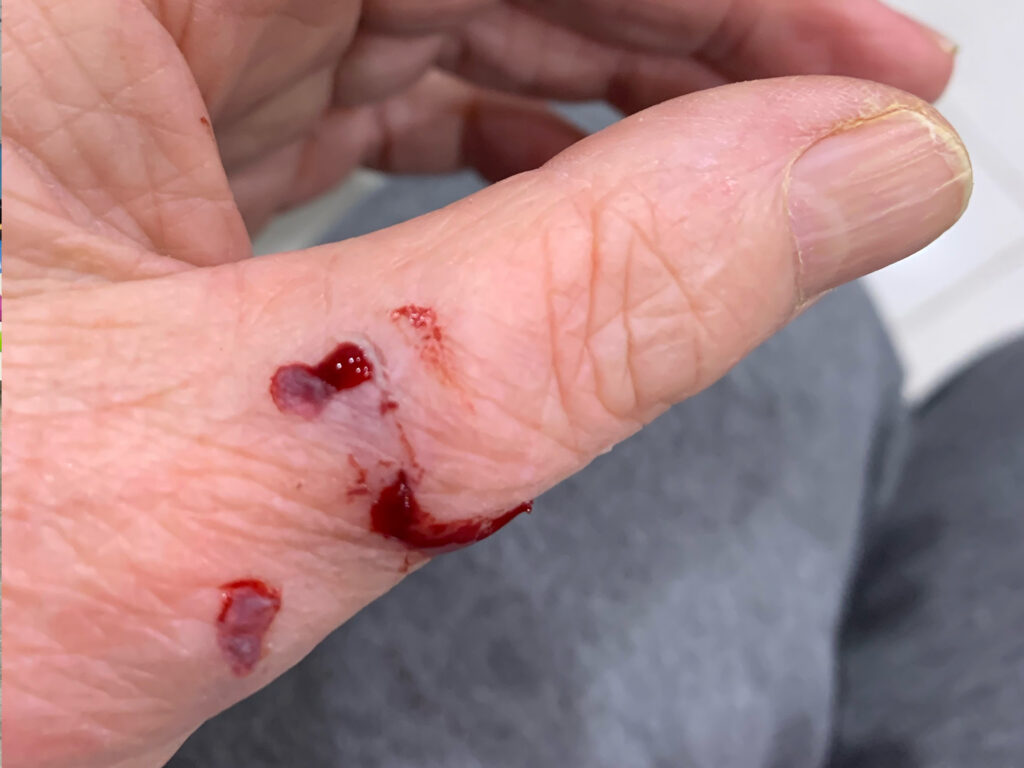
Birds bite. Understanding why birds bite, is the first step to stop biting. A close encounter with a bird's beak at some point, is the one thing I can usually guarantee a bird's owner. That and a close encounter with bird poop. They are the two things a bird owner should expect. That's the bad news. The good news is, biting for the most part is controllable and you can poop train a bird. This article isn't about poop though.
The first step to avoiding a bite is understanding why a bird is going to bite. The obvious answer is that a bird is going to bite to defend themselves. They will bite out of fear. A beak is a defensive weapon for a bird and I think most of us would expect a wild bird to bite us rather than act tame. Especially if the bird is in pain or afraid you are a predator.
Bites Are Often Defensive
I think this is the crux of the reason why so many owners struggle with their pet bird biting. Our pet birds aren't something we consider as wild and we think they shouldn't see us as a predator. Feelings get hurt when a bird bites, trust is broken and sometimes it's very hard to get back from that.
There are several problems with this. Firstly, science doesn't support the idea that our pet birds are domesticated. We might consider birds domestic pets but scientifically most of them are not really there yet. The process of domestication takes time. Humans have domesticated dogs, cats, farm animals etc over hundreds of years and generations of breeding. Their genetics have changed with the process of domestication. Birds? No. We're still catching them from the wild and calling them pets. Genetically, birds are for the most part, the same as their wild counterparts. There are some notable exceptions to this (e.g. chickens) but for the most part we really need to be aware our pets have wild instincts. Stress and fear are going to bring those instincts out. This isn't anyone's fault, it's just something we need to be aware of, which will help prevent triggering a bite.
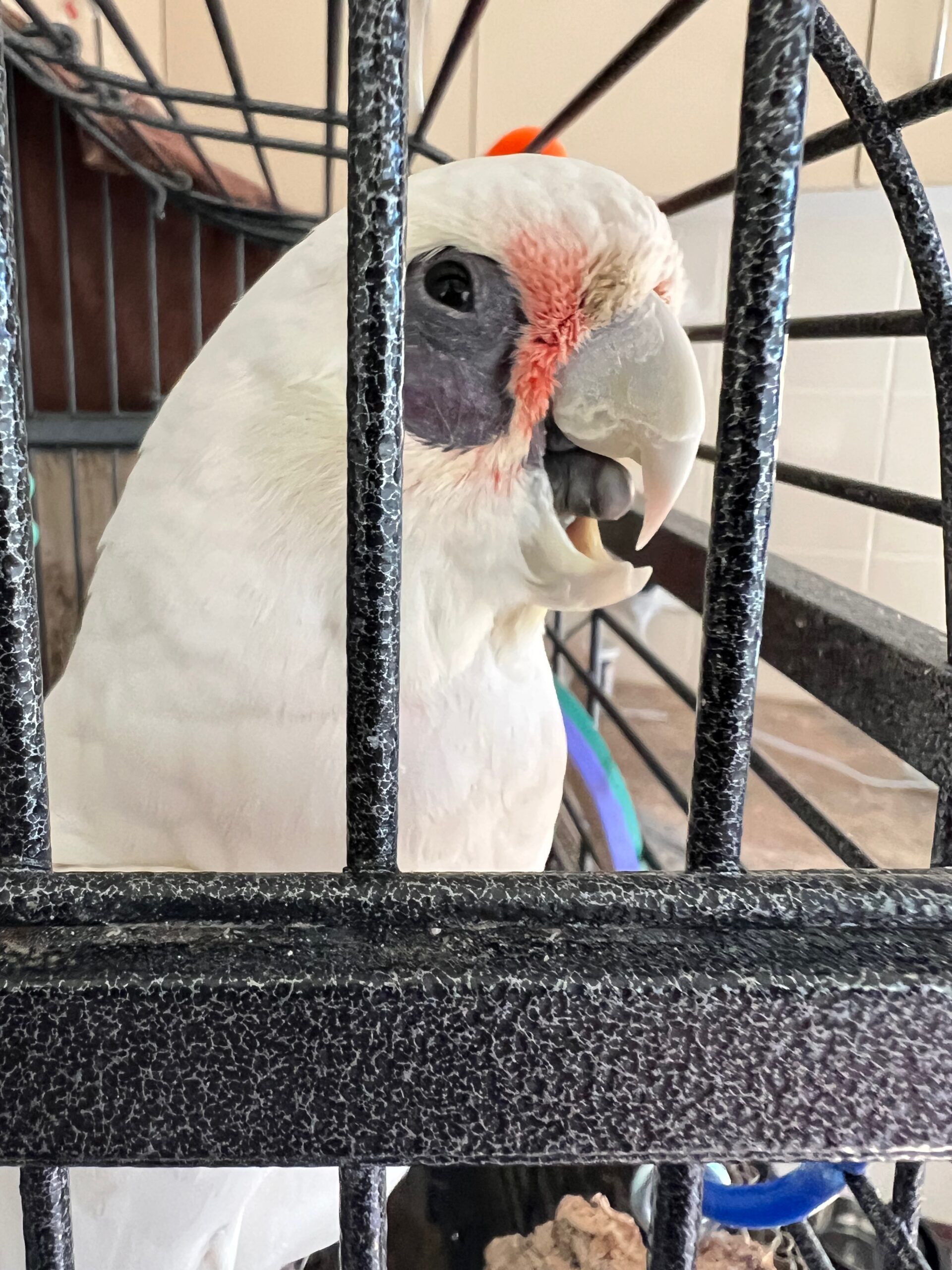
When it comes to pet birds, owners often fail to realise that they are often not biting out of fear or for defense reasons. Yes it happens, but there is another very common reason that birds bite, which most owners overlook. The biting that I see when clients come to me is most often a learned behaviour. To spell that out clearly - pet birds often bite because they have been taught to do so.
While the idea of weaponising birds has potential... (Ever wondered what happens to people that don't pay a bird trainer's bill?!?) For the most part, owners are not training birds to bite on purpose. Which means, the problem is both fixable and preventable. If you can recognise when you are accidentally training birds to bite, you can stop doing that.
There's a golden rule when it comes to understanding behaviour. If the behaviour is increasing in frequency - it is being reinforced. Another way of looking at that is, the bird is getting something that it wants because it bit someone. There is something rewarding the bite. Most people when bitten, will retract the body part (usually the hand) that got hurt. That's almost always a reflexive reaction to pain that the bitten human won't be able to help.
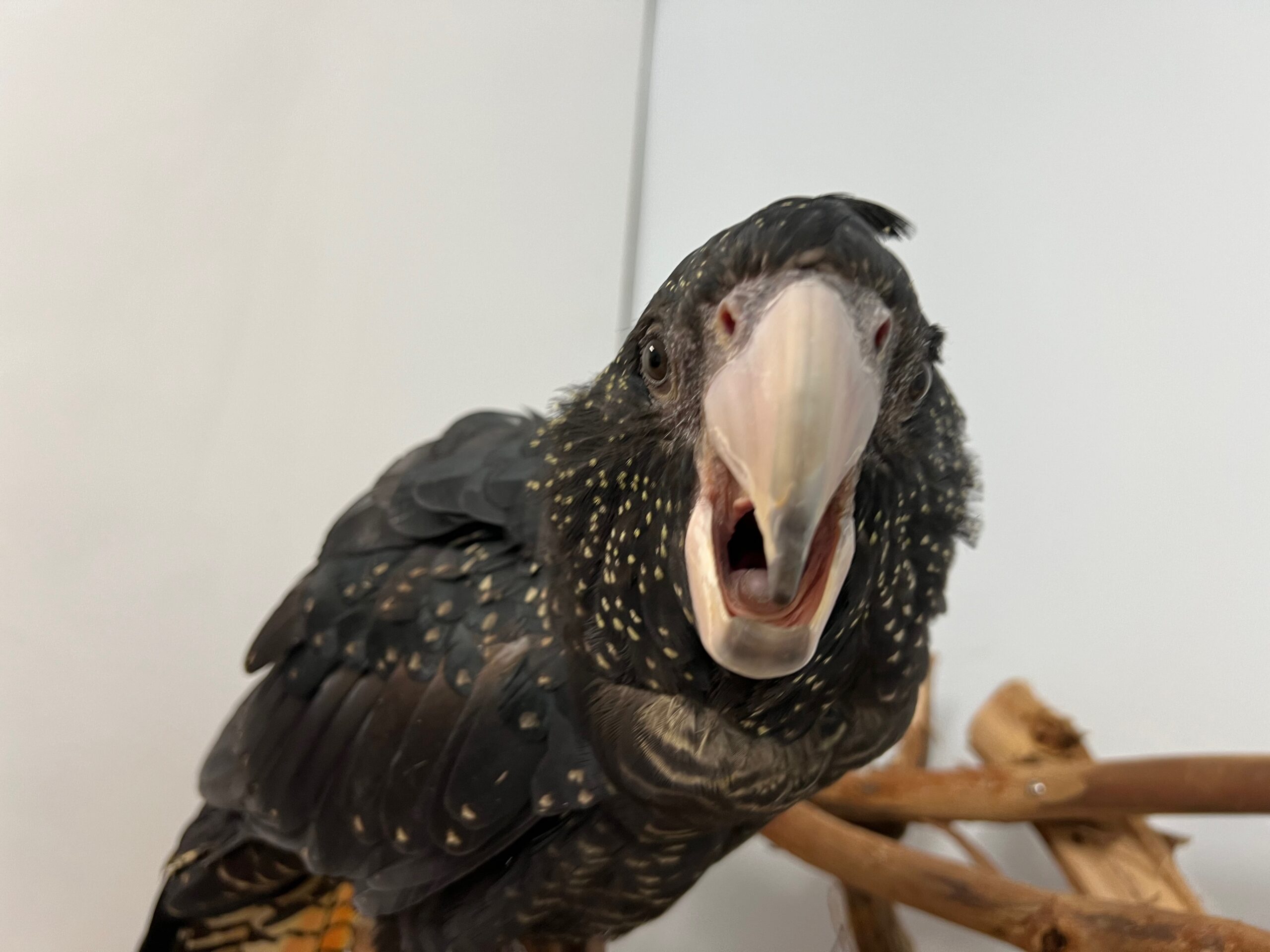
What To Do When You Get Bitten
So there are two ways to look at how to handle a bite. The most obvious is to try to change your reaction. If your hand retracting is reinforcing the behaviour, failing to retract, in theory won't reinforce the bite. The danger here is to accidentally slip into the realm of punishment, so it's not something I recommend as a method to control the bite. That said, if you can fight your reflexive action of ripping your hand out of a beak and just hold still for a second, it often shocks the bird into releasing you voluntarily. They often pause their bite, because your reaction is not what they're expecting and then you can usually safely retract your hand. The advantage of that is that if the bird voluntarily releases you, you're not going to end up bleeding from torn skin.
It is the act of ripping your hand away and out of a beak, that does more damage to you. However, while it improves your chances of not getting hurt, this is not going to be suitable as a long term solution for biting. It's just going to get you out of that initial bite with less damage. If you do this as a strategy to stop biting entirely, you run the risk of escalating a normal bite to a much more ferocious version. You're also crossing over into punishment, which isn't great for a whole number of reasons.
A Better Way to Stop A Bird Biting
A much better approach to use when stopping biting, is to look at the wider context and see if you can get any hints towards the bird's motivation. Why could your bird want your hand to retract? What was happening at the time of the bite? When I ask clients this, it's amazing how often they're getting bitten when they want something from the bird. I get responses like:
- "It was bedtime and they were refusing to go back to their cage for the night."
- "It was when I was trying to get my bird off my partner's shoulder."
- "It was when I was on my phone and he doesn't like my phone."
- "It was when I wouldn't share my coffee."
- "It was when I wanted him to put on his harness."
- "He just won't step up!"
The list goes on with other similar scenarios...
These situations all have one thing in common. The word "No". The bird said no to going to bed, the bird said no to getting off the shoulder, the bird said no to the phone, the bird said no it was going to get to the coffee, the bird said no to wearing a harnesss, the bird said no to stepping up... In a nutshell the bird said NO and because the human wasn't hearing the no or respecting it, they ended up saying no as loudly and violently as they could to make sure they were heard.
This is the breakthrough that most owners miss. The more they ignore their bird saying no, the more quickly the bird is going to jump to biting to say no. This comes down to respecting your bird. They're intelligent and they have their own mind. They will say no, in non-violent ways before they resort to violence (at least at first) but the more that doesn't work, the more they learn to bite.
If there is one thing that I want owners to learn, it's to learn to respect a bird's body language. If your bird is saying no - respect it. Otherwise you are forcing your bird to bite to say it. You are TEACHING them to bite to say it.
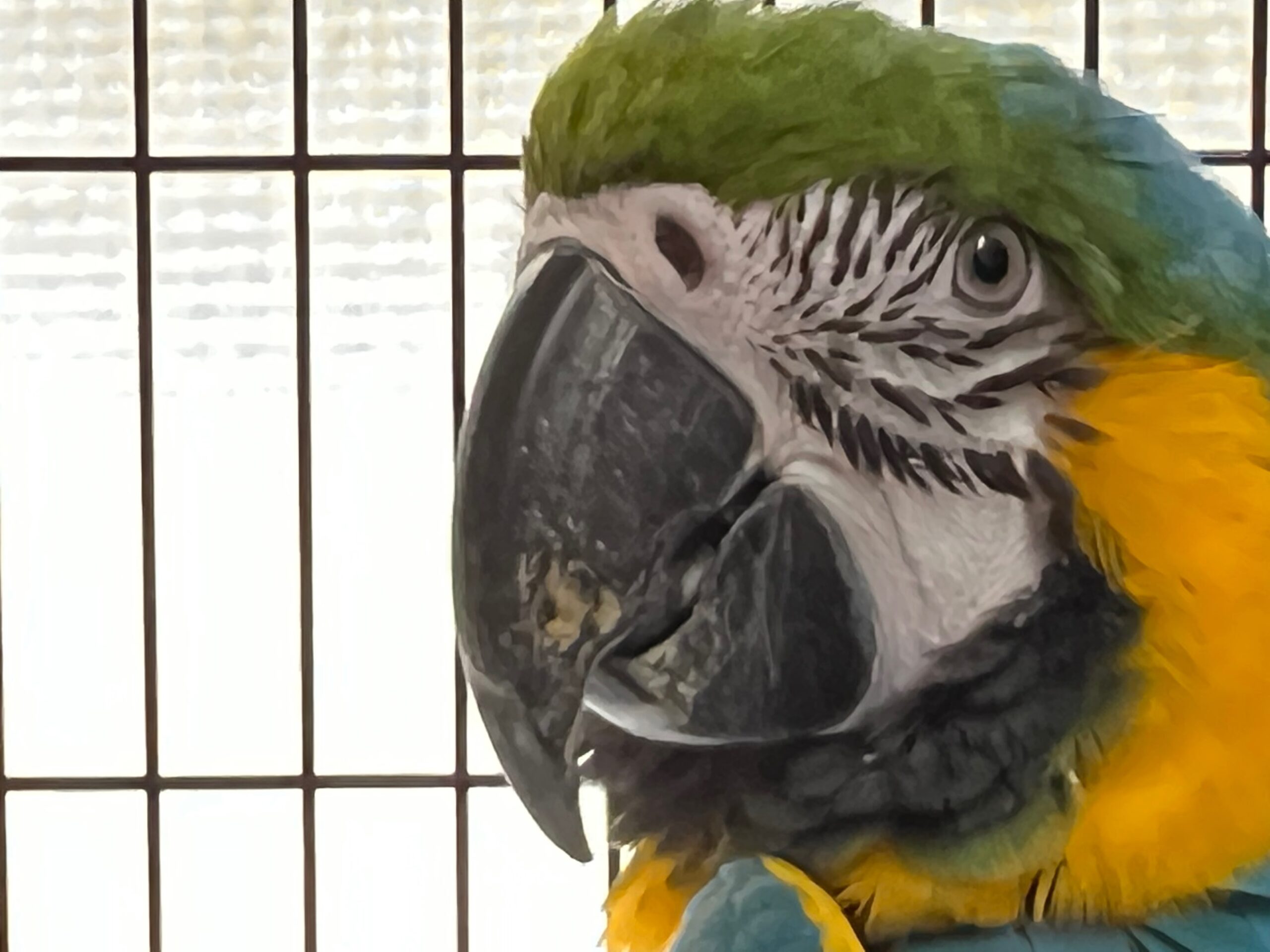
Respect When Your Bird Is Saying NO.
This doesn't mean that we let birds get away with murder. There are going to be times when you need your bird to do something that it doesn't want to do. If it's bedtime, you need your bird to go to bed. If someone is terrified of your bird, you're going to want to get your bird off their shoulder. There are countless situations where you are not going to want to hear your bird say no, you're going to want to force a yes. I still want you to hear them when they say no and allow it. Then I want you to manipulate them into saying yes, or better yet avoid the no in the first place.
If your bird says NO. Consider why they're saying no? What are they getting out of saying no? Can you switch the situation around so that you both get what you want? Make them want to say yes? Maybe they don't want to go to bed because they're not tired and want to stay up and play. So the consequence of them staying up from their perspective is more time out to play and wear themselves out. Maybe you should have played a wild game, wearing them out - before you asked them to go to bed? Set yourself up for success by doing something to make them more likely to do the behaviour you want.
Alternatively, find a way to make the behaviour that you want them to do, have a more rewarding outcome than them saying no would have. Maybe you need some sort of amazing treat or toy that they know they'll get for going to bed? How can you reinforce the behaviour you want?
I hate to say it, but the better bird owners tend to be very good at being manipulative. Manipulation is a skill you're going to want to have when it comes to avoiding a bird's bite! Turn those NOs into YES or avoid them entirely. The second you start to think like this, is the second you stop accidentally teaching your bird to bite.
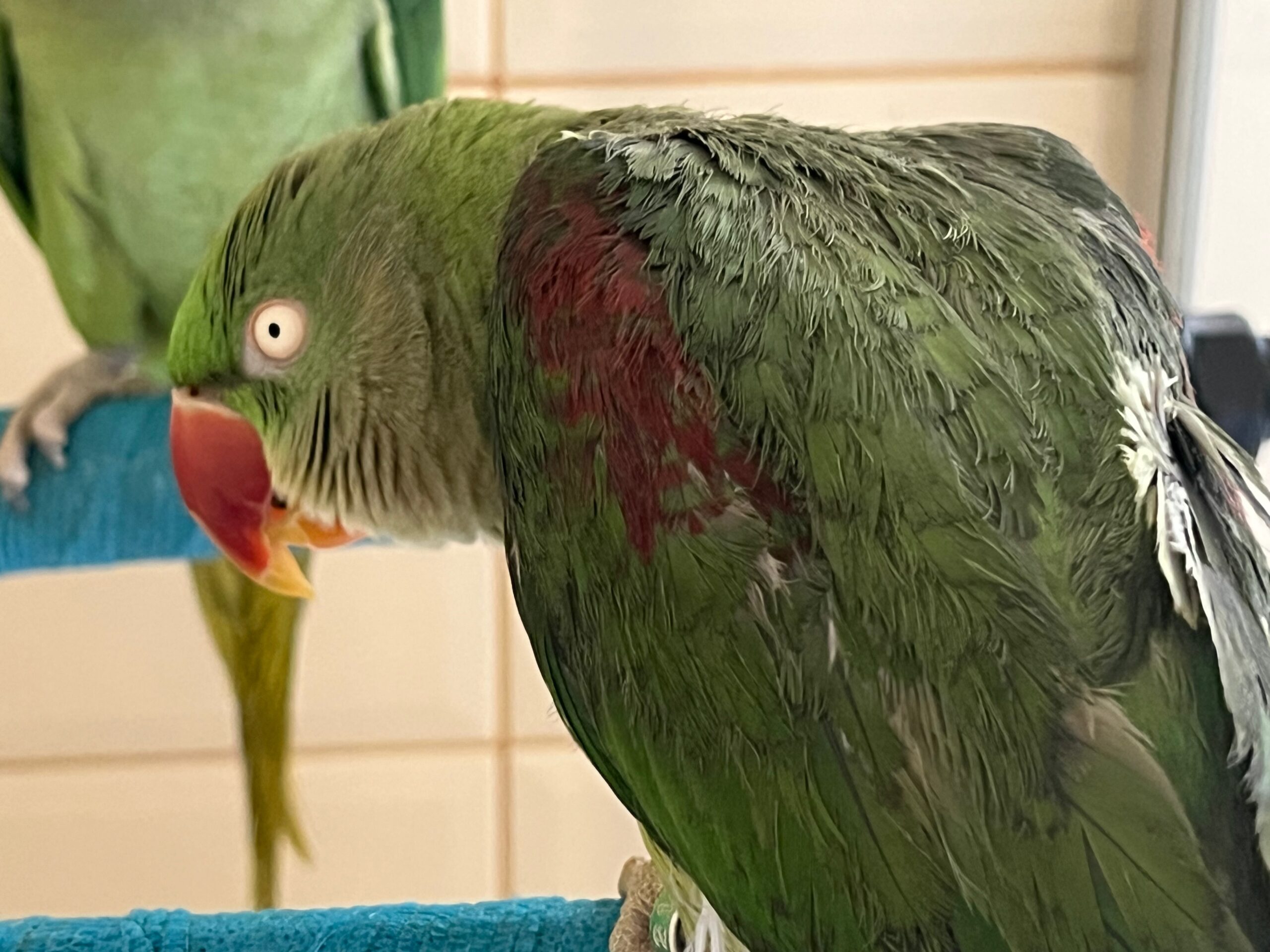
Get Help!
Obviously biting is a very complex topic and this only lightly skims some major issues. There is a lot of incorrect advice available online, so if you're struggling with a biting bird... please don't hesitate to get professional help. It's more affordable than you think.
Need help with an aggressive biting bird? Book a Behavioural Consultation with Mel now.
Think a class structure might suit you more than an one:one consultation? Check to see when the next Parrot School class is running. Think puppy school but for parrots.
Follow the Works For Birds Facebook Page, new tips and free information are posted regularly.
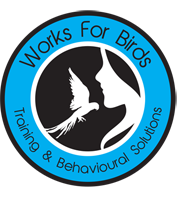
Hi! First off, I love your articles and thank you soooooo so much for them!!
So, mine likes to bite me to direct me around to what he wants, or if I don’t do something fast enough for him…yes, he sounds a little spoilt, and he IS, somewhat… Can this be fixed? We’ve been together 6yrs now and there’s 2 other birds in his flock, the other birds don’t bite unless you invade space or do something they reallyyy don’t like…but my lil spoilt green gremlin, Peter, is just something else. He chases my male housematesl, and my female housemate gets attacked if she’s late home from work and doesn’t give him attention (she has her OWN birds 🤦). I know I’ve made him like this by giving in to him when he was little, please tell me I can fix this? I’m kinda getting worried for the safety of my housemates faces during hormone time…